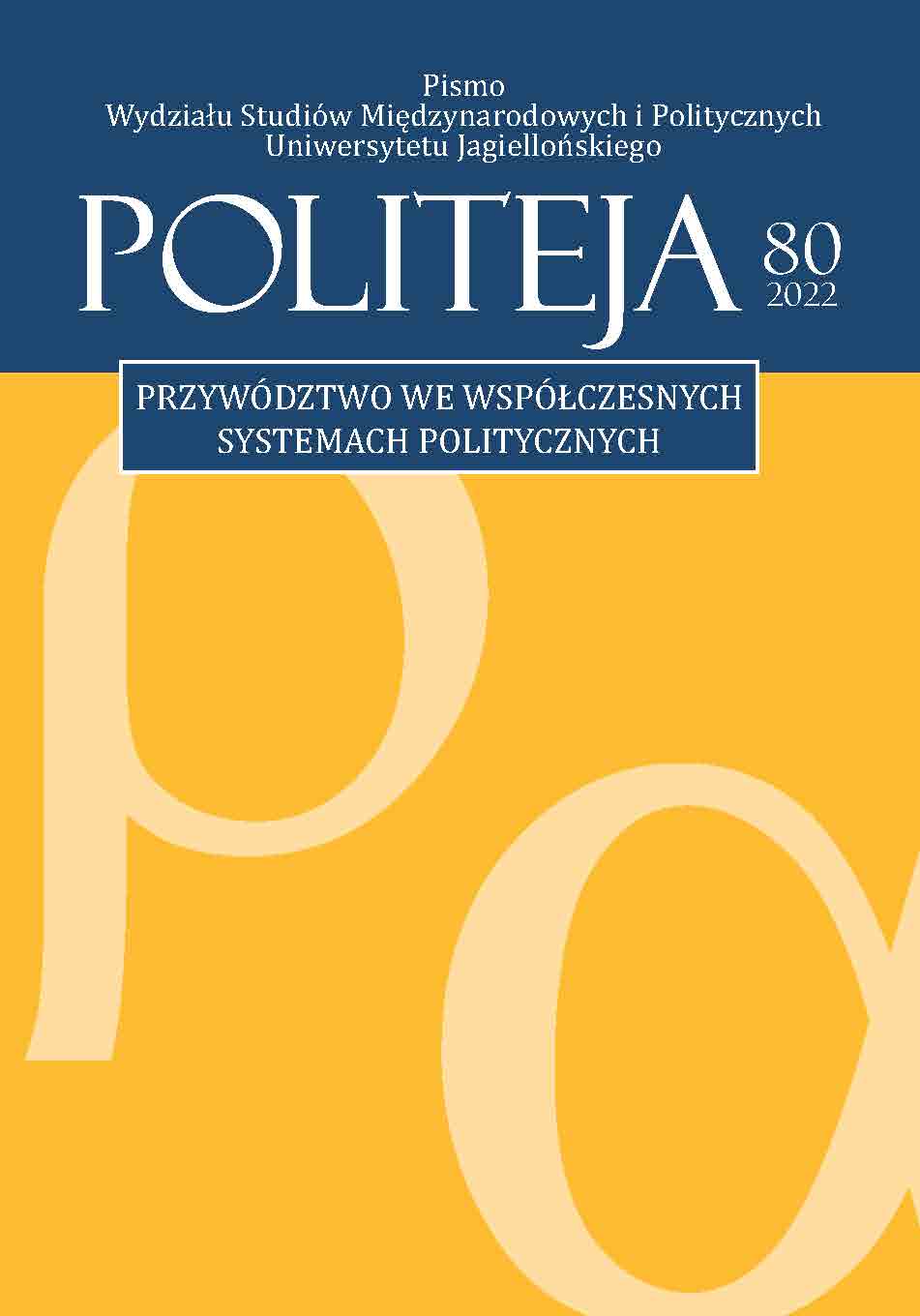Przywództwo premierowskie w Polsce. Casus Hanny Suchockiej, Ewy Kopacz i Beaty Szydło
Prime Ministerial Leadership in Poland: The Case of Hanna Suchocka, Ewa Kopacz and Beata Szydło
Author(s): Krystyna Leszczyńska-WichmanowskaSubject(s): Politics / Political Sciences, Politics, Government/Political systems
Published by: KSIĘGARNIA AKADEMICKA Sp. z o.o.
Keywords: prime ministerial leadership; Prime Minister; female prime minister; Ewa Kopacz; Hanna Suchocka; Beata Szydło
Summary/Abstract: Hanna Suchocka, Ewa Kopacz and Beata Szydło assumed the position of Prime Minister in the result of political calculations, and not after winning parliamentary elections in the style of e.g. Margaret Thatcher. Women were delegated to take the position of prime ministers in response to the need for change, at the same time knowing that they would bring a stereotypical image of a woman with its community attributes, i.e. amicability, submission, willingness to cooperate. The objectives behind the nominations of women for the position of Prime Minister included, among others, softening the image of politics. E. Kopacz held the strongest political position, as she also held the position of leader of the Civic Platform. Although B. Szydło was also the vice-leader of Law and Justice, but she had no influence whatsoever on key political decisions. H. Suchocka held the weakest position, as she was only an “ordinary” member of the Democratic Union. All of them had served as MPs before becoming prime minister. However, before joining the narrow, exclusive group of the heads of government, only E. Kopacz gained extensive experience: she was the first woman minister of health, the first woman do become speaker of the Sejm and a head of a large political party. The fluctuation of social support for women reached a large range and ranged between 73% (H. Suchocka) and 52% (E. Kopacz and B. Szydło). These indicators were high and even very high, given that women were allowed to rule at a time when it was difficult to come to and maintain in power.
Journal: Politeja - Pismo Wydziału Studiów Międzynarodowych i Politycznych Uniwersytetu Jagiellońskiego
- Issue Year: 19/2022
- Issue No: 80
- Page Range: 261-280
- Page Count: 20
- Language: Polish

